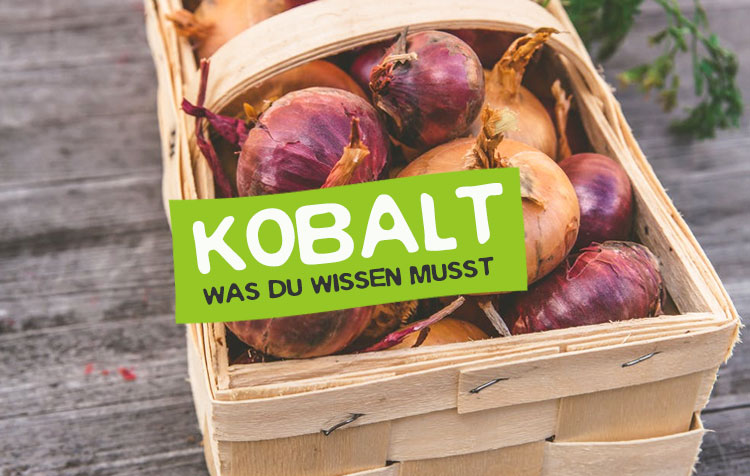You want to know more about the quantity element magnesium? Great, then you will find here in this article all the important information about the nutrient. Starting with the clear profile, about type, function, daily requirement, overdose and deficiency, to food and supplements. If and what vegans and vegetarians should consider regarding their magnesium supply, you will also learn towards the end of the article.
Here is in advance a short Overview for you:
Notice: This article is not a substitute for medical advice, but merely provides general information about magnesium. Please consult your doctor if you feel unwell or want to prevent health problems with medical care.
Magnesium PROFILE at a glance
Assignment: Set element, alkaline earth metal category
Important for: Energy and vitamin D metabolism, enzyme cofactor, nerve and muscle function, bone formation.
Daily requirement: 300-420 mg/day depending on age and sex1,2,3
Recording: through dietary intake or supplementation
Overdose: Oversupply possible
Deficiency symptoms: Neuromuscular hyperexcitability, vomiting, nausea, confusion and apathy, among others.
Food: Cocoa powder, pumpkin seeds, sesame seeds, legumes, millet
Nutritional supplement: various magnesium compounds as capsules, tablets or powder
Optimize magnesium intake

Magnesium belongs to the essential quantity elements. This means that the body must absorb this micronutrient through food and cannot synthesize it itself. The human body contains an average of about 25 g of magnesium, two-thirds of which is found in the skeleton and about one-third in soft body tissues.
The average bioavailability is 20-30 percent and is influenced by various factors. One Sufficient potassium intake promotes magnesium absorption.
Notice: By the way, you can find out which foods are good sources of potassium in the separate article on Potassium.
Resorption inhibiting factors are in any case Phytic and oxalic acid and dietary fiber. To optimize magnesium intake, you can reduce the phytic acid content of foods by fermenting, soaking or sprouting them. Oxalic acid content can be reduced by soaking or boiling, as oxalic acid is water-soluble. In this case, it is better not to use the cooking water.
Although dietary fiber binds polyvalent cations and also magnesium, it is also beneficial to health. A diet rich in fiber is usually also very nutritious, which increases the magnesium content and compensates for the decreasing intake.
Optimize recording: adequate potassium intake, reduction of phytic and oxalic acids by soaking, sprouting, fermenting or heating.
How much magnesium do you need?
The reference values for magnesium differ more or less depending on the organization. Basically, a differentiation is made between age and gender. The European Food Safety Authority (EFSA) recommends a daily intake of 350 mg for men and 300 mg for women.2 The Office of Dietary Supplements recommends an intake of 400-420 mg for men, depending on age. The recommendation for women varies from 310-360 mg depending on age.3
The following table shows the recommended reference values for magnesium intake in mg according to the German Nutrition Society (DGE).
| Age | Men | Women |
| 1 to under 4 years | 80 | 80 |
| 4 to under 7 years | 120 | 120 |
| 7 to under 10 years | 170 | 170 |
| 10 to under 13 years | 230 | 250 |
| 13 to under 15 years | 310 | 310 |
| 15 to under 19 years | 400 | 350 |
| 19 to under 25 years | 400 | 310 |
| 25 years and older | 350 | 300 |
In other studies, the magnesium requirement was calculated per kg body weight, so that it is more adapted to the individuality of each person. Here, a requirement of approximately 3-4.5 mg/kg body weight was determined.4
Under certain circumstances, magnesium requirements may increase. These include heavy sweating, competitive sports, pregnancy and lactation, stressful situations, diabetes, kidney disease, anorexia, or when exposed to aluminum.5
What do we need magnesium for?
One of the most important functions of magnesium is its participation in the Energy metabolism. Magnesium enables the conversion of adenosine triphosphate (ATP). ATP is the immediately available energy carrier in the cells. Magnesium contributes an essential part to the Vitamin D metabolism in. The essential nutrient activates transport molecules for vitamin D, as well as metabolic enzymes, and ensures a healthy parathyroid hormone level, which in turn supports the Vitamin D-metabolism is regulated.6
In addition, magnesium is an important Co-factor for approx. 300 further enzymeswhich influence the metabolism. The Nerve- and Muscle function, the Bone grafting and the DNA stability are supported by magnesium. Furthermore, the important nutrient acts anti-inflammatory and relaxes the muscles of the Blood vessel walls.
Clear presentation of the functions of magnesium:
- Supports energy metabolism
- Essential factor for vitamin D metabolism
- Co-factor of approx. 300 enzymes
- Important for nerve and muscle function
- Promotes bone formation
- Involved in genome stability
- Anti-inflammatory
- Good for the cardiovascular system
Can there be an oversupply?
The Office of Dietary Supplements and the DGE have not established a Tolerable Upper Intake Level (UL). EFSA has also not established an official UL, but has only established an intake limit for dietary supplements. This limit is 250 mg/day taken through a supplement in addition to magnesium intake through food.7
The limit of 250 mg/day for dietary supplements is also referred to as NOAEL: no adverse effect level. This means that from the limit of 250 mg/day health disadvantages may occur, but not necessarily. However, since the study did not measure magnesium intake from food, I find it rather less meaningful and you can listen to your body when supplementing magnesium.
An oversupply of magnesium usually manifests itself in very soft stools and even diarrhea. So if you notice that your stool becomes very soft or even liquid, you should take less magnesium. In extreme cases, this can lead to disorders of the central nervous system or cardiac arrhythmias.
Tip: How you generally Prevent heart disease you can find out in the linked article.
Symptoms of magnesium deficiency
According to the large-scale National Dietary Survey II, 26 percent of men and 29 percent of women do not reach the recommended daily intake of magnesium.8 Most magnesium deficiencies are nutritionally induced and therefore also reversible with a balanced diet rich in magnesium.
However, there are also other causes, such as diabetes mellitus, kidney disease, frequent diarrhea or vomiting, alcoholism, or regular use of certain medications such as diuretics, corticosteroids, or contraceptives.
Straight Diabetic should pay particular attention to their magnesium intake, as the mineral positively influences the production of insulin and ensures that blood sugar reaches the cells.9
A magnesium deficiency manifests itself in symptoms like one Calcium-magnesium ion imbalance, neuromuscular hyperexcitability, tingling, muscle cramps, and even cardiac arrhythmias.. Other symptoms are Vomiting, nausea, confusion and apathy.
Risk groups for deficiency: Diabetics, people with kidney disease, people who regularly take diuretics, corticoids or contraceptives, and alcoholics.
The best sources of magnesium among foods
To ensure your magnesium supply, you should not only take measures to promote absorption, but also eat the right foods. In general, magnesium is mainly found in Plant sources such as legumes, cereal products, and nuts and seeds.
The loss of magnesium is highest when processing white flour products. This means that if instead of white flour you go to Wholemeal flour you can already do a lot for your magnesium supply. So next time, put whole grain spaghetti in your shopping basket instead of white flour pasta.
An overview of the top sources of magnesium:
- Cocoa powder, highly deoiled (598 mg per 100 gram)
- Pumpkin seeds (400 mg per 100 gram)
- Sesame (350 mg per 100 gram)
- Cashews (270 mg per 100 gram)
- Legumes (120-190 mg per 100 gram)
- Oatmeal (140 mg pro 100 Gramm)
Magnesium supply with a plant-based diet
The DGE has magnesium not classified as a potentially critical nutrient in vegan diets.10 This is mainly because the best sources of magnesium are plant-based and dairy products, as well as meat, contain rather little magnesium. Thus, a magnesium deficiency is less likely with a vegan diet than with a vegetarian or mixed diet.
If you want to check your magnesium supply regularly, I recommend the To have magnesium levels measured in whole bloodinstead of simply determining the serum value. This is because the body tries to keep the magnesium content in the serum constant and therefore releases magnesium from the blood cells or stores it there.
Should magnesium be supplemented?
For most people, a magnesium deficiency is unlikely if they eat a whole-food diet. Especially the groups at risk for magnesium deficiency should, however, regularly check their magnesium levels and, if necessary, take a dietary supplement.
Magnesium is always stored in a compound, i.e. together with another substance. Since these substances all have different effects, I recommend that you either take a combination preparation that combines different forms of magnesium or that you first read up on the individual forms and their exact modes of action.
- The magnesium combination preparation in powder form you get here*
- Magnesium in capsule form is available here*
Supply yourself with sufficient magnesium
The absolutely perfect magnesium supply probably does not exist, because each person is individual. But each individual can supply himself sufficiently with the essential nutrient with a balanced diet of whole grain products, legumes, as well as nuts and seeds. If you then still pay attention to the absorption-promoting measures from time to time, a magnesium deficiency is extremely unlikely.
Feel free to write me a comment if you have any questions or suggestions about this post on magnesium.
All the best,

PS.: You want to know, why i live vegan? In the linked article you will find many good and logical motives for veganism. If you want to learn more about other nutrients, you can just have a look in the Nutrient overview look.
References:
1 German Nutrition Society: Magnesium, https://www.dge.de/wissenschaft/referenzwerte/magnesium/?L=0 [14.07.2021].
2 European Food Safety Authority: Scientific Opinion on Dietary Reference Values for Magnesium, https://efsa.onlinelibrary.wiley.com/doi/epdf/10.2903/j.efsa.2015.4186 [14.07.2021].
3 National Institutes of Health. Office of Dietary Supplements: Magnesium. Fact Sheet for Health Professionals, https://ods.od.nih.gov/factsheets/Magnesium-HealthProfessional. [14.07.2021].
4 H. K. Biesalski, P. Grimm & S. Nowitzki-Grimm (2017): Taschenatlas Ernährung, Thieme Georg Verlag, Stuttgart/New York. Online: https://eref.thieme.de/ebooks/1855531#/ebook_1855531_SL72533037. [14.07.2021].
5 Center for Health: The Best Magnesium Supplements, https://www.zentrum-der-gesundheit.de/ernaehrung/mineralstoffe-spurenelemente/magesium-ueberblick/die-besten-magnesiumpraeparate. [14.07.2021].
6 Zentrum der Gesundheit: Vitamin D remains without effect in magnesium deficiency, https://www.zentrum-der-gesundheit.de/ernaehrung/vitamine/vitamin-d-uebersicht/vitamin-d-magnesium. [14.07.2021].
7 European Food Safety Authority (2006): Tolerable Upper Intake Levels for Vitamins and Minerals, https://www.efsa.europa.eu/sites/default/files/efsa_rep/blobserver_assets/ndatolerableuil.pdf. [14.07.2021].
8 Max Rubner Institute. J. Möhring, H. F. Erbersdobler (2008). National consumption study II - Results report part 2. In: Lebensmittel-Warenkunde Für Einsteiger, (Springer), pp. 121-146. Online: https://www.mri.bund.de/de/institute/ernaehrungsverhalten/forschungsprojekte/nvsii/erg-verzehr-naehrstoffe/ [14.07.2021].
9 Zentrum der Gesundheit: Magnesium: The most important mineral, https://www.zentrum-der-gesundheit.de/ernaehrung/mineralstoffe-spurenelemente/magesium-ueberblick/magnesium. [14.07.2021].
10 Deutsche Gesellschaft für Ernährung e. V.: Supplement to the position of the German Nutrition Society regarding population groups with special nutritional needs, https://www.dge.de/wissenschaft/weitere-publikationen/dge-position/vegane-ernaehrung/?L=0 [14.07.2021].





